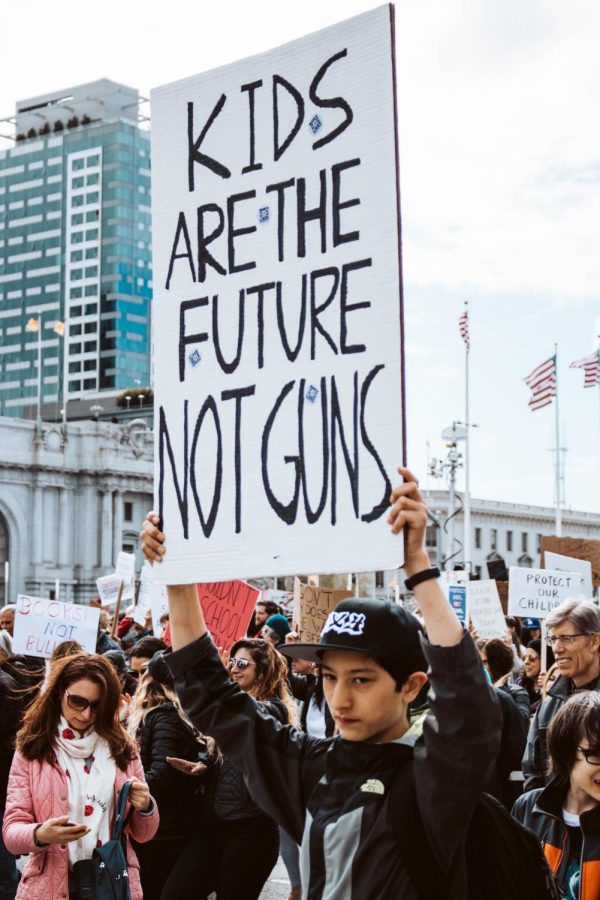The Sandy Hook elementary school shooting took the lives of 20 young children and six adults on Dec. 14, 2012 in Newtown, Conn. For nearly eight years, the families of the victims attempted to avenge their loved ones against the gun manufacturing company Remington, which was responsible for the sale of the shooter’s gun.
On Tuesday, Feb. 15, these families reached a $73 million settlement with Remington, a payment which will never compensate for lost lives but could provide a measure of accountability to mitigate such tragedies in the future.
The shooter, then 20-year-old Adam Lanza, committed this atrocity as a challenge to end the most lives. Lanza stole several firearms from his mother, Nancy Lanza. He then shot and killed her and drove to Sandy Hook elementary school, where he killed 20 first graders and six staff members. Throughout the shooting spree, Lanza used a Bushmaster Model XM15-E2S rifle manufactured by Remington.
Families of the victims filed a lawsuit against Remington Dec. 15, 2014, the day after the second anniversary of the shooting. This lawsuit intended to unearth any dishonest marketing or appeal practices buried in the firearms industry and counteract future school shootings. Litigations scrutinizing the risky tactics employed to market and sell lethal firearms surrounded Remington, exposing the industry’s secrets and eventually necessitating the publication of Remington’s private documents detailing their marketing plan.
This irresponsible marketing was a critical yet equivocal point in the lawsuit. It stated that the marketing techniques used by Remington were directed towards troubled young men and could induce aggressions and anger in these individuals. Slogans such as “consider your man card reissued” specifically appealed to troubled, naive individuals looking for validation. By pinpointing the manly qualities associated with owning the Bushmaster AR-15 in violent video games and ads, Remington induced distressed, insecure young individuals to turn to these weapons to fit into today’s hyper-masculine society.
In addition, the lawyers for the plaintiff argued that the militaristic qualities of the rifle were extolled, reinforcing the image of a combat weapon for this rifle. Remington portrayed the AR-15 as a war gun, further condoning brutality to their consumers. This is a highly unethical stance to feed to the public, inciting gun violence and provoking unstable individuals. Remington’s marketing violated Connecticut’s consumer protection law, which reprimands deceptive marketing, according to CNN.
Connecticut has implemented consumer protection laws to offer some counter to the excessive immunity of gun manufacturers, the sole exception allowing this lawsuit to prevail. New York, California and New Jersey are looking to introduce such bills to prohibit further deceitful practices in this potent industry.
This lawsuit was settled nearly eight years after the assault by insurance companies of Remington, who paid the entire settlement without any input from the firearm manufacturers, according to officials of the gun industry. The settlement has bankrupted Remington, a company which now effectively no longer exists, and is the first time a gun manufacturer has assumed responsibility for a mass shooting.
The onset of this settlement proved the gun industry is not bulletproof. This lawsuit managed to evade the Protection of Lawful Commerce in Arms Act signed by President George W. Bush in 2005, a law intended to protect gun manufacturers from “frivolous” litigation, essentially immunizing the firearms industry. By poking holes in this blanket legislation, this settlement introduced significant detriments to the unchecked gun industry.
This federal immunity posed a serious barricade to most gun control efforts, but the outcome of this case has shown it is possible to dodge this shield and institute limits and responsibilities to manufacturers. President Joe Biden commended the settlement for creating newfound standards in the industry. “While this settlement does not erase the pain of that tragic day, it does begin the necessary work of holding gun manufacturers accountable for manufacturing weapons of war and irresponsibly marketing these firearms,” he stated.
Deputy Jamey Fah also predicted positive outcomes of this settlement. “I suspect with this settlement in the future there will be more litigation towards gun manufacturers after incidents when their weapons are used,” he stated. This settlement paved the way for future challenges towards the gun industry to surface.
Though just a first step, this settlement begins to strengthen restrictions on the firearm industry. Currently, America’s most popular rifles, the AR-15 and AK-47, are the weapons used in nearly all mass shootings. These guns are lightweight and fast, expelling up to 30 bullets in mere seconds. The sheer power of these weapons raises questions of entrusting military weapons, rather than typical hunting rifles or handguns, to the general public.
Gun manufacturers might bear a greater responsibility of ensuring their weapons are used in the appropriate manner after this settlement. English teacher Lynne Lundberg offered some possibilities manufacturers might take to ensure such deadly weapons remain checked and secure. “Common sense things that can be done to make it more difficult for people to use guns in their home to commit a violent act…some solutions are a little pricey but if it is a choice between spending a little bit of money on a trigger lock or locking guns in a cabinet as opposed to risking these lawsuits, gun manufacturers might be really encouraged to have their consumers, their products users take those precautions. Maybe they will build them in,” she stated.
This settlement might tighten the distribution and accessibility of such destructive weapons, but it is unlikely to reduce crimes and intentions of armed violence in the nation. Fah reinforced the uncertainty on the effects this settlement will have on firearm deaths. “I cannot say if this settlement will make schools any safer,” he stated.
Instead, it will impact the influence insurance companies have on gun manufacturers. Insurance companies possess the power to hold gun manufacturers responsible for ill use of products. This case used the common strategy of unearthing the exact liability held by Remington when dealing with misuse of products. The liability angle, though familiar in other industries, has never been executed with the gun industry and pokes at chinks in legislation upheld for many years. Several other industries, such as pharmaceuticals, automobile and tobacco, face severe investigation regarding product use, yet the firearm industry seems to escape such scrutiny.
Lundberg contrasted the double standard gun manufacturers seem to evade. “[The] attempt to provide some accountability for gun manufacturers has been remarkably slow, considering how much we expect manufacturers of other products to be responsible for their products’ use and misuse. Yet gun manufacturers have been held exempt from those product liability laws consistently,” Lundberg stated.
This settlement set a monumental precedent: Gun manufacturers can no longer prioritize profit over morals when appealing to their customers. Remington allured business by poking at the societal standard of masculinity and inciting violence in unstable individuals. After this case, gun manufacturers are sure to take more care before dismissing morals in order to avoid risking hefty lawsuits.
This successful settlement sends a potent message to gun manufacturers and dealers: They can be held responsible for tragedies aided by their products or insensitive tactics of appeal. It is an important win for school shooting victims across the nation to realize there is finally a consequence for these firearms placed in the wrong hands.









